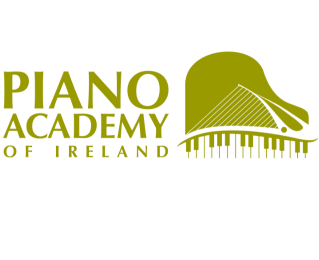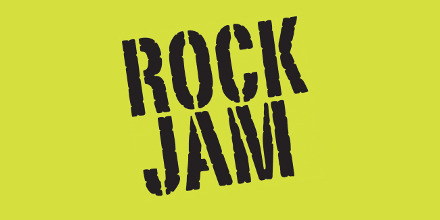Music Schools & Classes in Dublin
Find Music Classes by Instrument
Music Schools around Dublin
Find more classes near you
Advice on choosing the right Class
Are you looking to sign your child up for music lessons? Have you though about what instrument would be a good introduction to music for your child? Piano and guitar are the most popular form of instrument for beginners, however, there are is a huge range of musical instruments that kids or teens can learn quite easily with the help of a music tutor, by taking weekly music lessons or through attending a music academy after school.
Below is a list of instruments with difficulty meters and general information for you to consider before you commit your child to learning a particular musical instrument.
Piano
Most kids will be ready begin piano lessons from age 5 1/2 +, or from whenever your child shows a keen interest in playing the piano which can be as young as 3! Make sure your child's hand is big enough to comfortably stretch across five keys on the piano. Kids who learn the piano at a young age will soon develop the neccesary understanding of basic music concepts which will make the transition to other musical instruments much easier!
Studying music develops discipline, hand-eye coordination, intelligence, and creates a skill that can bring happiness to both the performer and to all who listen. According to a recent article in the LA Times, 6-year-olds who received keyboard instruction had more brain growth and better fine motor skills than their peers. Piano lessons are such a great thing, why not get started as soon as possible?
Source: Hoffman Academy
Guitar
What age can kids begin to learn the guitar? Or restated, is there such thing as being “too young” to learn the guitar?
At the surface this is really a simple question to answer: there is no such thing as “too young” as long as the kid is personally motivated to learn. But if you dig a little deeper you’ll find that the answer is a little bit more complicated than that.
- Small victories motivate kids: if you really want your child to learn the guitar, invest in a child-sized guitar (or you can invest in a longer-lasting, quality travel guitar). You can get one for under $100 and it will be so much easier for them to successfully create a good-sounding chord. The sooner they experience that first “victory”, the quicker they will get hooked on learning.
- Don’t Push Them: nowadays this usually goes without saying – this generation of parents is super-sensitive about letting their child explore what they like instead of forcing them to learn something they don’t like. Pushing the guitar on a child, often in the form of guitar lessons, can easily backfire. I didn’t have my first guitar lesson until years after I first began playing the guitar. One option? Allow them to do online guitar lessons. It’s cheaper, can be done from home and is self-paced. (here is a review of a good online guitar lesson site)
- Lead by Example: the quickest way to get a child to learn the guitar is to show them how much fun it is to play it! If you play the guitar yourself, play it in front of them. Let them strum. Let them sit in your lap and feel the beautiful vibrations of the wood. They don’t care if you haven’t played for years and your chords don’t sound perfect. They’ll be happy to listen to you play anyway.
So to answer the question, don’t hold back your child from learning the guitar because you think they might be too young but at the same time don’t force the guitar on them just because you want them to learn early. It’s a hard line to walk, I know.
I’ve seen kids start learning guitar at age 5. I’ve seen others start at 12 and learn at an incredible pace. Neither is better than the other in my opinion.
Source: GuitarAdventure.com
Drums
What age should you consider getting drumming lessons for your child? By all accounts, around 7 years old is a good age marker to start drum lessons. According to drummercafe.com, children under the age of 7 are not developmentally ready to learn the drums. Also, children younger than age 7 can have short attention spans which can drift during a drumming lesson which requires concentration. If kids can't concentrate on keeping beat and creating a fun rhythm, then their enthusiasm for learning may wane.
Violin
Most parents would love for their child to become a music prodigy but most often, either they start their child too young or they push too hard and the child sees it as a chore rather than a joy. Generally speaking, most children can learn to play violin by the age of three and some even younger if they show a keen interest in learning the violin. It is important to introduce children to the concept in a fun learning environment where they will associate learning the violin as a source a happiness rather than homework.
Tin Whistle
Most children can learn a tune on the tin whistle pretty easily from any age. When children attend Primary school, the tin whistle or the recorder are standard instruments which may be used in music class. If you find that your child has a gift for the tin whistle or if they would like to learn how to play the tin whistle to a higher standard then you know they are ready for tin whistle lessons.
Clarinet
The clarinet is a good instrument to follow on fro the tin whistle. The clarinet does require more discipline and is not as easily gratifying as the tin whistle so your child should express a keen interest in learning the clarinet before you consider lessons. As the clarinet can be physically demanding as an instrument, children from the age of age would be better suited to learning this instrument.
Flute
Like the clarinet, the flute requires a little more maturity and discipline on the children's part to learn how to play the flute successfully. Around 7 or 8 is a good age to start flute lessons, although children who have learned how to play the recorder from a young age will have a profound advantage.
Cello
According to learningthecello.com, "a child who loves music, who is approximately 9 years old and who has had some piano lessons and some choral training" is the ideal candidate for learning the cello. It's OK for most children to start the violin at age 5 or 6 because the child can stand and sway and balance on their feet and the instrument need only fit the arm length. With the cello, you have to take into account the torso length, the arm length and the hip to knee length. Finding the right shape/size of cello that will allow for freedom of movement can be very difficult. The younger the student, the more important it is to have an excellent teacher who can spot and remedy potential problems.
Fiddle
Children as young as three can learn how to play the fiddle, much like the violin! Of course, as we said before, it is important for the child to show an interest in learning the fiddle before you start lessons. Due to the lively nature of the fiddle, it would be advantageous to enrol your child into a traditional music class group so that they can have fun with other kids their own age as they learn.
Bodhrán
Again, the bodhran is a musical instrument which requires dedication from a student to learn how to play it successfully. If you find your child has a real knack for playing the bodhran, then lessons can begin at any age!
Banjo
The banjo is an instrument which requires a certain amount of dexterity so we would suggest the child has already learned how to write and hold a pencil correctly before you start lessons. Children who have already learned the guitar will obviously have an advantage when it comes to learning how to play the banjo. In general, children should be ready for banjo lessons between the ages of 6 and 8.
Saxophone
According to Musika.com, "the best age to start saxophone lessons varies, mostly determined by the size of the student and which type of the saxophone they are interested in. We typically recommend seven or eight as the minimum starting age for saxophone lessons. Alto saxophones are best suited for younger students due to their size, roughly two feet in length. The alto sax is also the most popular type of saxophone for beginners, due to its compact size and lower weight.....The baritone sax is around four feet in length and thus is frequently too large for students until they are a little older, usually at least age 9 or 10. The baritone sax is also more expensive to purchase and rent, so keep that in mind before starting a complete beginner out on this instrument."
Viola
Many teachers recommend that the best age to start viola lessons is around age 5 or 6.
Harp
According to celticharper.com, " because harp technique is a little more complicated than some instruments initially (e.g. piano, recorder), I generally recommend a minimum starting age of around 6-8 years old, depending on how co-ordinated a child is and what kind of attention span they have."


 Unlock Your Musical Potential with Ireland’s Premier Piano Academy
For 20 years, the Piano Academy of Ireland, nestled in Rathgar, Dublin 6, has been at the forefront of music education, shaping the talents of students from 3 to 103 years old. As Ireland’s leading specialist piano school, we offer an exceptional learning experience, guided by the renowned concert pianists and co-directors, Dr. Archie Chen and Rhona Gouldson-Chen.
Unlock Your Musical Potential with Ireland’s Premier Piano Academy
For 20 years, the Piano Academy of Ireland, nestled in Rathgar, Dublin 6, has been at the forefront of music education, shaping the talents of students from 3 to 103 years old. As Ireland’s leading specialist piano school, we offer an exceptional learning experience, guided by the renowned concert pianists and co-directors, Dr. Archie Chen and Rhona Gouldson-Chen. 

